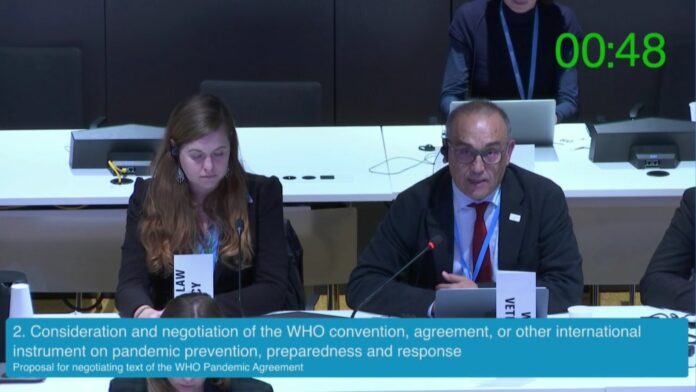This statement was delivered by Kaitlin Mara at the World Health Organization’s seventh meeting and drafting group of the Intergovernmental Negotiating Body (INB) to draft and negotiate a pandemic accord, which took place in Geneva 6-10 November 2023.
Thank you, co-chair, for the opportunity to speak on behalf of Medicines Law & Policy. Our remarks focus on Articles 9 – research and development – and 11 – transfer of technology and know-how.
We welcome the transparency provisions in Article 9.
But Article 9 should also include a provision to ensure that access, IP and technology transfer conditionalities are attached to public funding for pandemic-related R&D.
On Article 11.2 (c): the use of TRIPS flexibilities is required when voluntary measures are unavailable, but the list of TRIPS Articles is incomplete. TRIPS Articles 39, 44.2, and 73 (b)iii, for example, contain important TRIPS flexibilities and should be included.
Article 11.3 (b) considers a situation where public funding is used to develop pandemic countermeasures. This provision should additionally require the developer to urgently transfer any associated technology and know-how wherever it would help expand worldwide production during a pandemic.
Article 11.3 (c) presently only requires Parties to ‘encourage’ the sharing of know-how or trade secrets. It should rather urgently ‘compel’ such sharing where necessary to expand worldwide production. If it did so, as we explain in our briefing note, this provision would fill a crucial gap in the powers provided by the WTO TRIPS Agreement.
Further, Article 11 should also establish a Health Crisis Technology Access Pool to replace C-TAP.
I thank you for your attention.
Medicines Law & Policy brings together legal and policy experts in the field of access to medicines, international law, and public health. We provide policy and legal analysis, best practice models and other information that can be used by governments, non-governmental organisations, product development initiatives, funding agencies, UN agencies and others working to ensure the availability of effective, safe and affordable medicines for all.
